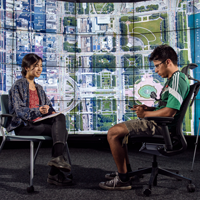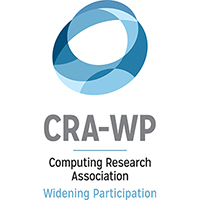Virtual Summer REU
 By Erik Russell
By Erik Russell
The Computing Research Association and organizers of the Distributed Research Experience for Undergraduates (DREU) Program made the decision to modify the 2020 DREU program from an onsite format to a virtual one. Given the devastating impact of the COVID-19 virus we felt offering a virtual Distributed Research Experience for Undergraduates (vDREU) would better ensure the safety of all participants while continuing to provide research-intensive opportunities to students considering advanced degrees in computing.
Twenty-eight students are currently working with thirteen faculty mentors on virtual research projects in a number of areas.
In addition to offering students and mentors the opportunity to participate in a virtual research experience we will be providing students with a travel budget to be used for a follow-up onsite REU activity that is coordinated with their mentor at a later date.
The program has some tips for those also starting virtual REU programs.
- Make an Onboarding Plan (proposed schedule, tasks, reading list, discuss meeting solutions)
- Make Yourself and Your Team Available (set up regular meetings and check ins, be responsive to emails/chats, arrange virtual social time)
- Share Information and Resources (help your mentee understand the bigger picture of their research project, help them think through educational and career goals)
Other resources for remote collaboration:
- Accessibility and Universal Design of Online Meetings
- Slides from the University of Washington Undergraduate Research Program with advice about mentoring
- Best Practices for Mentors
CRA’s Committee on Widening Participation (CRA-WP) and the DREU program partner with other organizations committed to broadening participation in computing to administer their summer REU programs including, the NSF funded Institute for African-American Mentoring in Computing Sciences (iAAMCS), and the NSF funded Alliance for Access to Computing Careers (AccessComputing).
The DREU Program is currently led by Nancy Amato, University of Illinois, Urbana-Champaign, Monica Anderson, University of Alabama, Chad Jenkins, University of Michigan, Ming Lin, University of Maryland at College Park, Raja Kushalnagar, Gallaudet University, Richard Ladner, University of Washington, and Amanda Stent, Bloomberg. They are assisted by Brianna Blaser, University of Washington, Daniela Cárdenas, Computing Research Association, and Erik Russell, Computing Research Association.






